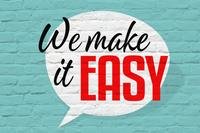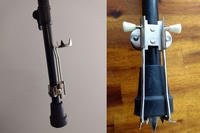Job searches are almost always stressful, especially when you're between jobs and your account isn't getting any bigger. Whatever the situation, it's important to research properly. There are tons of ways to conduct your job search the right way, but it's just as important to consider how you might be screwing it up. Fortunately, Forbes covers 7 critical mistakes to avoid while job hunting which we've lain out for you below.
1. Arriving too early.
Hopefully, if you've been on the job hunt for a while, the message "don't be late" has been driven home. But, rarely does anyone warn about another potential issue: arriving too early. Being too early isn't nearly as big of a potential issue as being late, but it can still ding your chances before you've even had a chance to interview. You should always provide ample time to arrive on site, and hopefully that means arriving a bit early, but that doesn't mean you have to be sitting inside of a lobby for 30 minutes waiting on your prospective employer. Keep your timeliness to about 10-15 minutes, and all should be well.
2. Speaking poorly of others.
You hated your last job. The management was stupid and your coworkers were lazy. Everyone complained. You took the blame for something that wasn't your fault. Whatever the problem is, stow it. In the professional world, no one wants to hear backbiting. Whenever you complain about someone, listeners are processing how you handle problematic situations and, perhaps subconsciously, apply your process to themselves. If you never attempted to resolve your issues but make a big fuss about them, how are people going to expect you to handle future issues? The way you discuss past problems showcases how you might handle them in the future, and complaining rarely indicates productivity.
3. Transgressing boundaries when asking for advice.
Part of networking is learning from as many people as you can. Wherever you are, whoever you talk to, if you're face to face with someone in your industry or one you want to work in, you can increase your chances at a successful career by engaging them with questions. However, it's important to deftly handle these situations. No matter how helpful someone wants to be, there are always limits to personal boundaries. Don't monopolize anyone's time, be sensitive to whether or not the other person actually wants to help, read their body language, and never assume you are owed advice.
4. Lacking personality.
Professional doesn't mean robotic. Your professional self shouldn't be completely sanitized of personality or character. One of the key elements of success in the business world is interpersonal skills, and very often big breaks come from people who connect with you on a more personal level. It's definitely a tricky art to pull off, but at the very least think of how you can present yourself in a business-oriented way without masking what makes you, you.
5. Discussing compensation.
Thinking about job interviews like dates can help put a lot of elements into perspective. For example, talking about compensation during an interview would be similar to talking on your first date about the delineation of chores once you settle down and get married. It's off-putting. The interview is place for you to showcase what would make you a great employee, and for the employer to figure that out.
6. Shallow networking.
Networking is far more than rattling off your accomplishments and shoving a frayed business card into someone's hand. The best way to network is to make genuine connections with people in your target industry. Real, personal connections are by far one of the best means of breaking into an industry, or advancing within it. This doesn't mean becoming best friends with everyone who can get you a job, but you should try to be open to meeting and getting to know people in your field.
7. Selling yourself short.
Effectively broadcasting your achievements isn't easy. Many people feel self-conscious about discussing what they have and haven't done, or don't know how to balance discussing work history without over-selling themselves. Whatever the reason, properly showcasing your talents and skills is key to landing a job. Practice with a friend or write your work-related achievements out, but whatever you do don't neglect to work on this skill.











